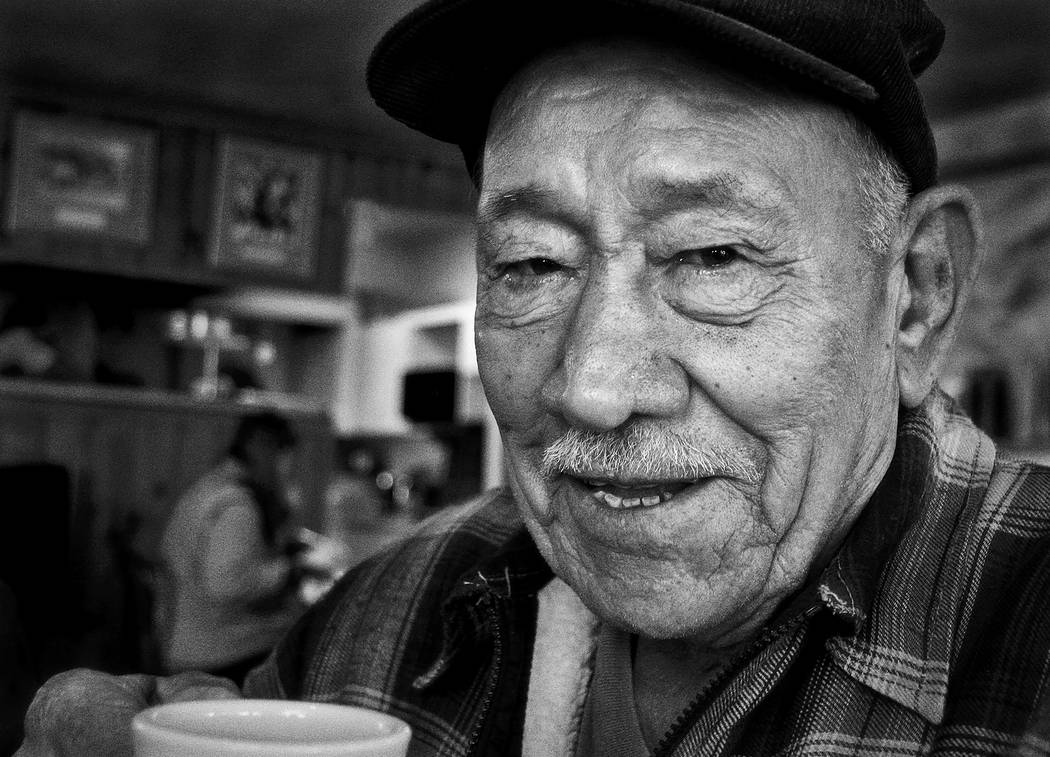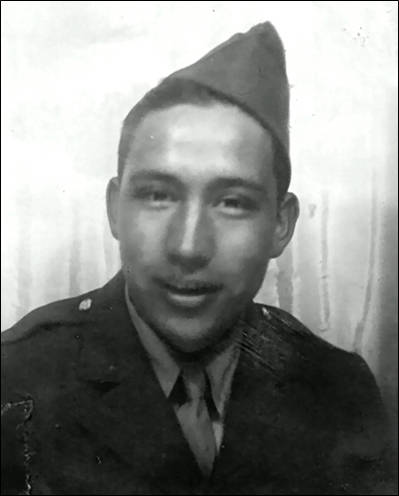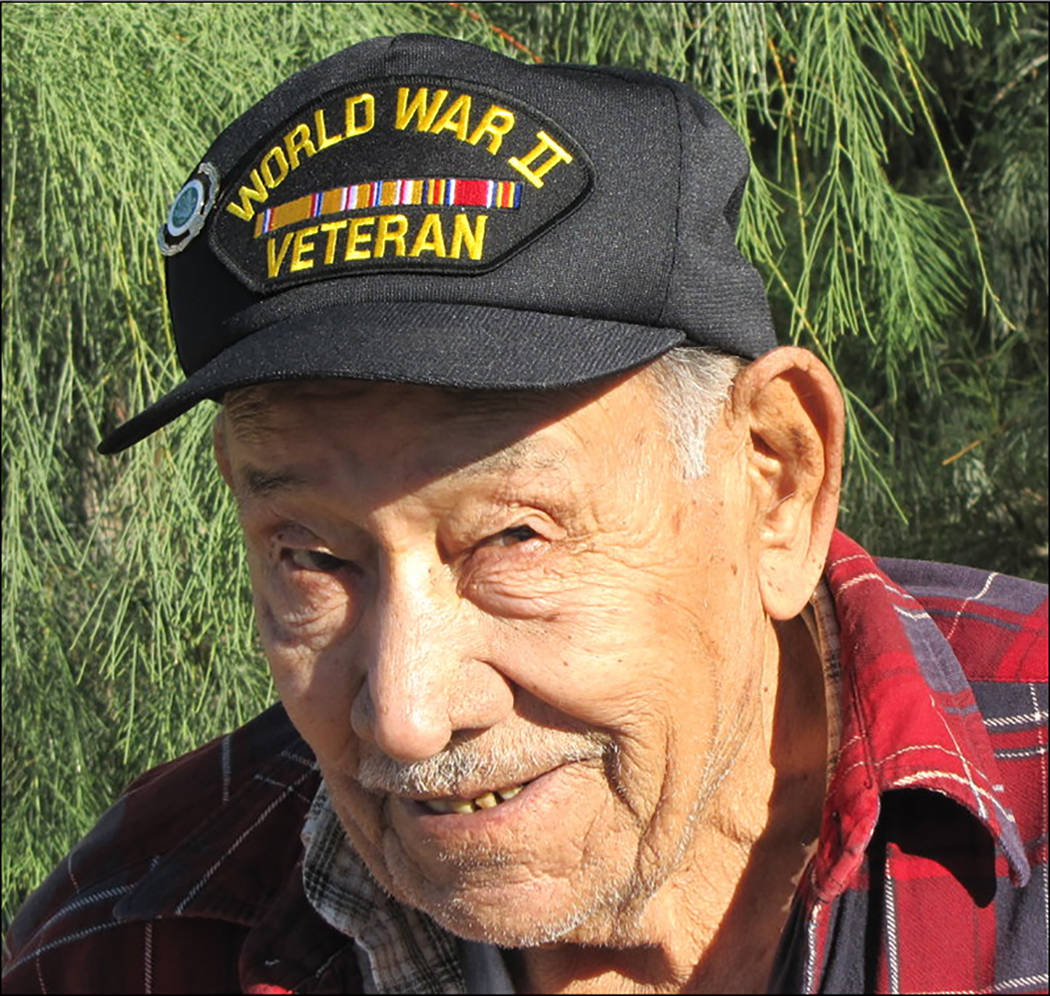Tecopa and Shoshone bid farewell to a native son
On the day after Christmas, 1925, at the edge of the little hamlet of Shoshone, within whistling distance of the Tonopah and Tidewater Railroad and close to the warm-water spring that kept the town alive, a healthy baby boy opened his eyes to the desert for the very first time.
His mother was a Paiute woman, traditionally raised, skilled in the art of basket weaving and more fluent in Paiute than in English. Her husband was a Hungarian hard-rock miner who was away working in the mines of Nevada.
Their son, named George Andrews Ross, was the embodiment of the juncture between the natural desert and its man-made future. Ross was a native son, a decorated soldier, a hard-rock miner, an adventurer and, until his death at home with family in Pahrump earlier this month, a consummate storyteller.
His stories of 92 years of living on the desert, with brief sojourns to adventure and work in other places, are chronicled in two books written by historian Kenneth Lengner of Pahrump. His oral history, transcribed by the Nye County Town History Project, is in the libraries of the Shoshone and Pahrump Valley museums and at the University of Nevada Las Vegas.
In his later years, Ross was active with the Old Spanish Trail Association and helped uncover old wagon routes through Tecopa. He was well known as the emcee for the Shoshone Museum’s history program every fall during the Old West Days celebration and was a stalwart guardian of the stories of Death Valley’s past.
Ross grew up watching history unfold in Shoshone and was an integral part of those stories. As a small child, he and his sister lived with their mother, Julia Weed Ross, and her parents, Tom and Nellie Weed, who had come from Manse, Nevada.
When the elder Weeds were killed in a fire that burned up their tent structure, Julia moved with her children into a vacant house on the hill above the source of the warm-water spring. It was the first house ever built in Shoshone, in the 1880s, and its remains still stand today.
Growing up, Ross traveled with family to harvest pine nuts in the higher elevations of Death Valley or to other locations for more traditional family gatherings. He also attended the local one-room school and worked for newly elected California State Senator Charles Brown at the town general store and gas station. And as soon as he was old enough, Ross went to work in the mines, both small and large, learning a variety of skills.
When World War II arrived in Shoshone in the form of a draft notice, Ross signed up and went off to serve his country, sending light-hearted letters home with stories of his adventures. After fighting in the Battle of the Bulge in Germany and being part of the occupation of Japan, Ross returned to Shoshone.
He helped organize the first Amargosa Days celebrations, the early version of what would eventually become Shoshone’s annual Old West Days event. Ross also played for the Shoshone Indians baseball team, competing in a regional league that extended as far as the towns of Darwin and Beatty.
In the years that followed, Ross would become skilled in the operation of heavy road equipment and hard-rock mining techniques, working in, out, and around mining operations all over the Death Valley region and for the Inyo County Road Department.
He married in 1946, had three children, spent time in Kansas and Idaho, but eventually always returned to Shoshone and later Tecopa, where he maintained a home for over 40 years. Ross was also a longtime member of the Veterans of Foreign Wars in Pahrump.
After his retirement and the death of his second wife, Lois Ross, George became an active volunteer at the Shoshone Museum, as well as a local tour guide, helping historians and archaeologists uncover and preserve the area history.
“Someone’s got to tell these stories,” he often said, “so the people will remember them.”
Author Ken Lengner agreed and worked with George Ross, spending many hours together at the now abandoned mines, in desert places long forgotten by most, recording Ross’ stories for future generations.
Their two books, “Remembering the Early Shoshone and Tecopa Area (Southeastern Death Valley Region)”, and “Tecopa Mines; Operating During 82 Years of the Death Valley Mining Boom” were the product of those adventures. Both books are available at the Shoshone Museum, China Ranch Date Farm, Charles Brown Store, and the Pahrump and UNLV libraries.
In his oral history, Ross worked with old friend Harry Ford to record some of the Paiute words and phrases that he remembered from his childhood.
Many of Ross’s photographs and artifacts from his lifetime collection are on display at the Shoshone Museum, including his 1940’s-era baseball uniform.
In the past few months, failing health slowed Ross physically, said his granddaughter Melody Casner, but his stories were as lively as ever. Ross died peacefully of natural causes on Thursday, April 5 at Casner’s home in Pahrump, where the family had situated him so that he could see the desert from his window.
Ross will be buried in the Shoshone Cemetery near his mother on Sunday, April 15.
George Ross is survived by his daughter, Dixie Ross Collins, his four grandchildren, Melody Casner, Gary Casner, Mike Appello, and Cassandra James; 13 great-grandchildren, eight great-great-grandchildren, and numerous nieces, nephews and cousins.
A graveside service, including military tribute, begins at 1 p.m. Afterward, a celebration of life will be held in the Shoshone Flower Building. The most important part of the celebration, said Casner, will be the story telling. Ross asked that friends and family come to tell stories — stories about him, stories he told them, stories that will keep the history he guarded so carefully alive.


















